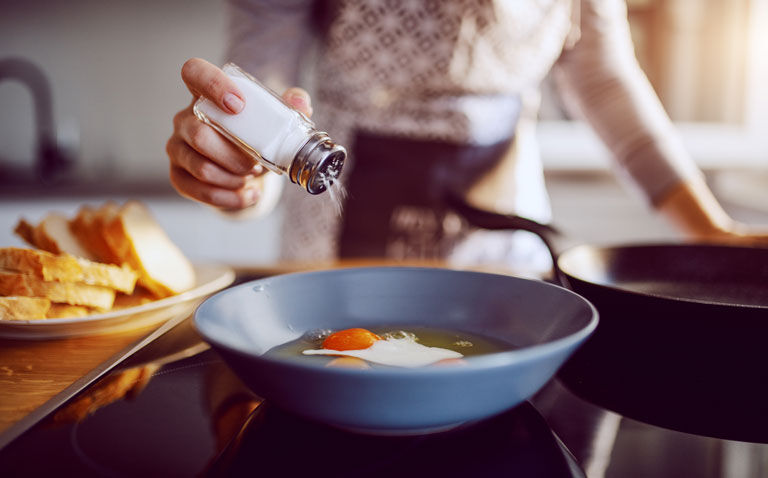Frequently adding salt to food increases the risk of premature all-cause mortality and a lower life expectancy in both sexes
Individuals who frequently add salt to food have a higher risk of a premature death and a lower life expectancy according to an analysis of data in the UK Biobank by a group of US researchers from Boston.
According to the World Health Organization, the intake of dietary salt (sodium chloride) is an important determinant of blood pressure, hypertension and overall cardiovascular risk and the organisation recommends a salt intake of less than 5 grams (approximately 2g sodium) per day, for the prevention of cardiovascular diseases.
However, several studies examining the relationship between salt intake and cardiovascular disease are conflicting.
For example, one study concluded that there was an increased risk of mortality for high-sodium intake even at the lowest levels of sodium intake. In contrast, another reported that changes in systolic but not diastolic pressure over time aligned with change in sodium excretion, but this did not translate into a higher risk of hypertension or cardiovascular disease complications.
Similarly, in a study of older adults salt intake, the authors concluded that food frequency questionnaire-assessed sodium intake was not associated with 10-year mortality, incident cardiovascular disease or incident heart failure, adding that consuming greater than 2300 mg/d of sodium was associated with a non-significantly higher mortality in adjusted models.
The reason for these discrepant findings are unclear though in a 2014 advisory from the American Heart Association, it was suggested that methodological issues may account for the inconsistent findings in currently available observational studies relating sodium to cardiovascular disease.
While salt is present in many foods, adding salt to food is a common eating behaviour and a single study has suggested that adding salt to food was strongly positively associated with all-cause, cancer-related, but not cardiovascular-related mortality.
Thus in the present study, the US team wanted to get a better understanding of whether the frequency of adding salt to food influenced the risk of premature death but also if other dietary effects such as fruit and vegetable intake might affect this risk.
Using a questionnaire that asked ‘do you add salt to your foods?‘, the researchers categorised intake as either never/rarely, sometimes, usually and always. They were also able to access data on random urine samples collected at baseline to measure sodium and potassium levels and also collected information on intake of fruits and vegetables (from the questionnaire) as well as lifestyle and clinical factors such as smoking status, physical activity, body mass index etc.
Adding salt to food and mortality
Data were available for a total of 501, 379 individuals with a mean age of 56.5 years (45.6% male). During a follow up period of 9 years, there were 18,474 cases of all-cause premature deaths recorded.
Not surprisingly, there was a graded relationship between the urinary sodium concentration and self-reported adding of salt to food.
In terms of mortality, there was an increasing risk with higher levels of reported addition of salt to food. For those who always added salt to food, there was a 28% higher risk (hazard ratio, HR = 1.28, 95% CI 1.20 – 1.35). In fully adjusted models, the risk of cardiovascular disease mortality was significantly elevated for those who always added salt to food (HR = 1.36, 95% CI 1.21 – 1.54, ptrend < 0.001) and for cancer-related death (HR = 1.64). Interestingly, however, a higher intake of fruit and vegetables attenuated the risk of premature all-cause premature mortality (HR = 0.97, 95% CI 0.69 – 1.37, p = 0.90).
The authors calculated that for a woman aged 50 who always added salt to food, had an average 1.5 lower years of life expectancy and this was higher for men (2.28 years).
They concluded that while always using salt at the table was associated with a higher risk of all-cause premature mortality, higher intake of fruits and vegetables may attenuate this risk.
Citation
Ma H et al. Adding salt to foods and hazard of premature mortality Eur Heart J 2022










